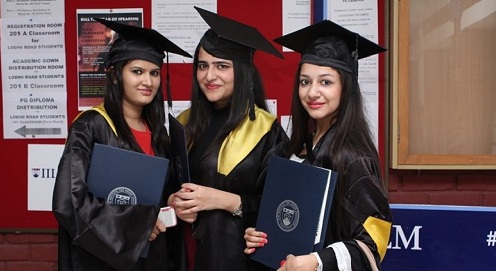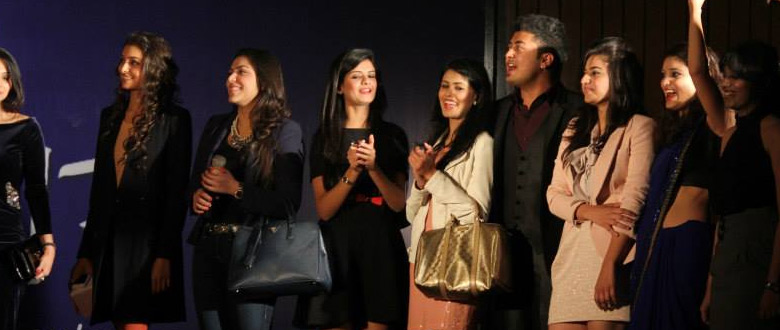A woman faces responsibilities, finding it frustrating to balance work and family life. Thinking that they are unable to give 100% commitment to either work or home, these women end up feeling guilty and give up their carrier. Women professionals with CA, MBA, MCA or BTech qualifications and technical and managerial experience have given up their jobs after marriage. Having put in years of experience in their specialized area, these women resigned their jobs for biological or transitional reasons. Regular timing, commuting for long distance and working during ungodly hours deter them from resuming a full time carrier. In their heart, they crave to get back to their work. But they cannot and this distresses. The concept of Flexi-plan Interim Managers will help fulfilling the needs of such women. They would like to work at their own pace in their own time from their own place.” Stay home Moms” who keep their career intact through this interim managers concept is very much prevalent in developed nations and is yet to find a place in India. But in our country it is ideally suited to take off, as we have a growing knowledge industry and a substantial pool of talented women professionals. Highly qualified women who take career breaks can’t find work when they are ready to return .They have to compromise on salary or status or both. To get that extra time of their own to look after their family, they are ready to compromise.
SEE ALSO: The Future of HR
Profiles of women professional –
Working women are either postgraduates or professionally qualified with good communication skills. Majority of them are in the age group of 26-35 years and all of them are married. Women can be found in jobs related to Software Development, Customer Support Services, Front Office Work and Sales and Marketing. The women are mostly from upper middle income group who have their materialistic comforts taken care by their family’s economic status. They possess skills like programming, software development, auditing, web designing, content creation, recruiting, counseling, training, communication, copy writing etc. Most of these skills are knowledge based. The profiles of women both in government and private sectors are of following areas.
- HR
- IT
- Customer care/hospitality
- Teaching
- Health care
- Banking
- Media
- NGO
- Politics
- Fashion designing
Why women are preferred in HR?
Of all the managerial and professional specialty occupations, human resource management has the highest proportion of women. In 1996, women made up 62.5 percent of all “personnel, labor relations and training” positions – almost 14 percentage points higher than the average for all managerial and professional occupations – according to the U.S. Department of Labor. What’s more, the percentage of women in HR is double what it was 25 years ago, when women made up 31 percent of the profession. Relative to other fields, “HR has one of the highest percentages of women in top executive positions,” says John F. Johnson, an executive recruiter who places chief HR executives in Fortune 1000 companies. “You find a higher percentage here than in finance, legal or other functions,” he adds. And more women appear to be headed into the profession, based on the college students studying HR. For example, 70 percent of the student members of the Society for Human Resource Management (SHRM) are women, according to Beth McFarland, manager of student programs. Women have better prospect in HR. Of course, women were unanimous in accepting that they are better at managing people. An Indian Information Service Officer said that while women manage work superbly even when unorganized .Personal experiences say that women are better at advising and mentoring. That’s probably one of the reasons why there are many women in the HR teams. Though psychologists warn of over-generalization based on gender, they opine that women are certainly better team players and more tolerant. But a clear-cut generalization that women are better managers is sheer short-sightedness and a highly biased opinion. Both men and women are individuals with their characteristic traits, which determine the managerial success quotient. Women’s way of communicating is not necessarily better than men but here it forms a big debate on the topic “Why women are preferred in HR”.
Figures released by the Chartered Institute of Personnel and Development (CIPD) regarding its membership, often a reliable way to look at the HR industry as a whole, reveal a staggering fact. Almost three quarters (72%) of the total membership are women.
It can be rare in established industry professions these days to have the figures so heavily skewed towards one sex or another and rarer still to find that women have the predominance over men. So what does this tell us about the HR industry, the core skills required, and the industry’s ability to attract skilled professionals from both sexes?
It’s in the genes?
On a broad, generic level, it has often been said that the skills and qualities required to be a successful Human Resources professional lend themselves more to those of the female skill set. Organisational abilities, an eye for detail, empathy, non-confrontational negotiation skills, listening and an overall desire to help have been cited as aspects of the profession that are cited as more feminine traits.
Historical ground –
To understand why there are more women in HR we must look at the history of the profession in the UK, says Angela O’Connor, HR director at the Crown Prosecution Service. “The roots of HR go as far back as the late 19th century, when the role of welfare workers was to take care of women and girls in the workforce,” she says. “These welfare workers were all women, and as more women entered the workplace during the two world wars, the number in welfare work increased and their role expanded to include recruitment and training.” The development from the welfare role to personnel, and then to HR, took place, therefore, in a predominantly female environment – in much the same way, for example, that engineering developed as a mainly male occupation. And just as small, but increasing, numbers of women have entered engineering over the past few decades.
Historically, HR can trace its lineage to as far back as the late 19th century and the role of welfare workers. All welfare workers were women, and it was their role to ensure that the women and girls in the workforce were taken care of. As more women entered industry during the two world wars, the welfare worker’s role was expanded to include recruitment and training.
The movement from welfare role to Personnel, and subsequently from Personnel to HR took place in a mainly female context, just as other industries – construction for example – relied on a mainly male workforce. Having examined the roots of the profession and found them to be predominantly female, it starts to become possible to see how HR has maintained its status as a female-oriented industry. This is not to suggest that men aren’t, or cannot be, successful in HR, but more that women have historically claimed the industry as their own.
Though it is different from person to person but many believe that the feminine attributes of female make them successful more than the men in HR. The reasons are;
- Nature of the job – Traditionally, the perception is that men generally opt for jobs where there are fixed results, measurable and competitive, whilst women have traditionally chosen less aggressive, softer, industry roles. This perception leads to a noticeable result for which more women today are in HR jobs. HR is generally perceived to be a profession based around people and people skills. Men – and this is too deep a topic to be specific about – tend to be attracted to areas that are more systematic, more structured and more competitive. HR has been associated with a ‘softer’ social science background which tends to attract women, whereas men tend to prefer the ‘harder’ sciences. HR’s image and perception has served to turn men off joining the profession. As far as many people in the outside world are concerned, HR is a soft and fluffy job all about social and women are more attracted to HR because they are in some way genetically predisposed to the nature of the job. Women seem to be attracted to caring “people-based” professions such as HR, while men have traditionally preferred professions where success is judged on results. In male-dominated professions, such as sales, law or engineering, we can see the number of sales made, or court cases won, or bridges built or exactly what has been achieved. But in HR, it has not always been easy to measure our achievement. Women are more attracted to the humanist side of the work. More men would create a better balance, but they need to be excited and have a passion for the work. Having a lot of women in HR is not a bad thing, unless there are barriers for them to make the step to HR director level.
- Ability to influence others through emotional intelligence – The key HR skills in many areas are the ability to empathize, relate and influence, and use emotional intelligence. Because women are more emotional then men and therefore employees feel more comfortable with someone who can express themselves emotionally then those who don’t. Women are generally more inclined towards behavioral approach system and they are generally scared of numbers so the best option to get into is HR as its all about Theoretical subjects and its mostly about psycho study… as HR is about knowing people and there behavior and thereby make decisions/predictions on the basis of peoples’ behaviour. HR is a job where the amount of power you have lies in your ability to influence other people, whereas in many other jobs, we have power through position. Women who come into HR and do well are particularly good at influencing other people. Women also seem to be less precious about positions; they seem to be more open minded when it comes to moving towards or away from a particular point of argument, whereas men often feel it is a sign of weakness.
- Better advising and mentoring capability – Women are considered for HR as they can get to know and understand the candidates’ mindset well and they can have better advising and mentoring skill. And probably women are more attracted to HR because they’re in some way genetically predisposed to the nature of the job. And HR is a function where the amount of power we have lies in our ability to influence other people, whereas in many other jobs, we have power through position. Yes women are coming out of their traditional lifestyle, educating themselves ad making a mark in the work field. Most organizations have women who hold excellent positions in HR. They are contributing to every field like training and recruitment.
- Better ability to understand – It might seem that HR really is a woman’s world, and if we take a closer look, we’ll see that women may be more nurturing and understanding in their interactions with people. The interesting part is women don’t shy away from talking to men…where men do not feel comfortable giving bad news to women or discussing sensitive issues. Men often have trouble melding fact, tack, and compassion. So, that is one of the reasons women do better in HR.
- More patience and tolerance – HR roles require high patience and tolerance as the essential skill. Its well accepted notion that women are more tolerant than men. So women become automatic choice for HR role.
- Multi-tasking ability – HR involves high level of co-ordination & process compliance. At times, there are many activities which may not require very high inputs from your side but needs to be executed simultaneously. Here once again female proves to be more effective than male counterpart.
- Sincerity – Many researches have proved that women are more sincere at workplace in taking the responsibilities for which women are preferred in HR. Self-discipline, motivation, internal locus of control, comfort with risk- these are some attributes seen in women that make them sincere in their work.
- Money management skill – It is rightly said that women can manage money better than men. As per women are concerned, their mind set up is too much different from men. They know how to spend money effectively.
- Less popular among men – It is a fact that HR as a specialization is not very popular among men. They tend to opt for finance or marketing. So less supply of equally qualified male HR professionals is also an important factor which restricts representation in HR teams.
Conclusion
Future of women in HRD is booming, as the HRD is also growing in many organizations slowly. If we then it can be concluded that men are still in HR at higher position. But it true that women move in HR more than other field and organizations are now giving chance to women to come up and utilize their talent in organization. There is a feeling that anyone can ‘do’ HR, that it is something anyone can pick up. This has led to a lack of professionalism within HR and a lack of focus on business outcomes. It is a challenge for women if they want their careers to be taken seriously and if HR is to be put on the map. The development of the HR business partner role, for example, requires business experience and qualifications. Now if we go deep into it we would be able to find the behavior pattern of women. Women today are creating new career models to use their MBA skills as well as time with their family. Beside of all as every aspect has two sides same as women are growing but they also face barriers in their working career, Lack of political savvy , Lack of career strategy, Work and Family, Family and Work Assumed to be Exclusive’ Family-Friendly Policies’ and Work Commitment. There are many women which have set example in corporate world. They have proved well and sometimes better than men in many fields. Its true that our country data is lower than the other country but now day by day the data is increasing and it is estimated that it would go higher and higher.





